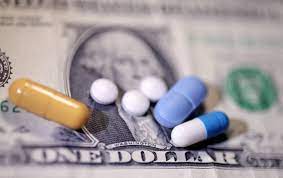
In a significant move to lower healthcare expenses, new deals have been struck to reduce the costs of expensive drugs covered by Medicare. These agreements are part of a broader effort by the U.S. government to tackle the high price of prescription medications, particularly those that place a heavy financial burden on seniors and people with chronic conditions. The new deals are expected to provide substantial savings for Medicare beneficiaries and help ease the overall cost pressures on the healthcare system.
Addressing the High Cost of Prescription Drugs
The high cost of prescription drugs has been a persistent issue in the United States, with many Americans struggling to afford the medications they need. For Medicare beneficiaries, who are often on fixed incomes, the burden of paying for expensive drugs can be particularly severe. The new deals aim to address this issue by securing lower prices for a range of high-cost medications that are essential for treating serious health conditions.
See here:
The Impact of New Pricing Agreements
The newly negotiated deals will result in significant price reductions for some of the most expensive drugs covered by Medicare. These include medications used to treat cancer, diabetes, heart disease, and other chronic conditions that disproportionately affect older adults. The price cuts will directly benefit Medicare beneficiaries, leading to lower out-of-pocket costs and making these life-saving drugs more accessible.
In addition to the direct savings for patients, the reduced prices will also help lower the overall cost of Medicare, potentially leading to savings for taxpayers and a more sustainable healthcare system.
The Role of Government in Price Negotiation
For years, there has been widespread debate over the role of the government in negotiating drug prices. Historically, Medicare was prohibited from negotiating prices directly with pharmaceutical companies, a policy that many critics argued contributed to the high cost of drugs. However, recent legislative changes have empowered the government to negotiate better deals on behalf of Medicare beneficiaries.
These negotiations are part of a broader strategy to curb rising healthcare costs and ensure that Americans have access to affordable medications. By leveraging the buying power of Medicare, the government is able to secure lower prices for essential drugs, benefiting millions of people who rely on these medications for their health and well-being.
Pharmaceutical Industry Response
The pharmaceutical industry has had a mixed reaction to the new pricing agreements. While some companies have cooperated with the negotiations, others have expressed concerns about the potential impact on their revenue and the long-term implications for innovation. Drug manufacturers argue that high prices are necessary to fund the research and development of new treatments, and that price cuts could discourage investment in future drug development.
Despite these concerns, the deals represent a critical step towards making prescription drugs more affordable for Americans. Proponents of the negotiations argue that it is possible to balance the need for innovation with the need for affordability, and that these deals are a necessary step towards achieving that balance.
What This Means for Medicare Beneficiaries
For Medicare beneficiaries, the new pricing agreements are expected to bring immediate relief. Lower drug costs mean that more people will be able to afford their medications without having to make difficult choices between paying for prescriptions and other necessities like food and housing.
The deals are also likely to have a positive impact on public health by improving access to medications that can prevent and treat serious health conditions. With more affordable drugs, Medicare beneficiaries are more likely to adhere to their prescribed treatment regimens, leading to better health outcomes and reduced healthcare costs in the long run.
Looking Ahead: The Future of Drug Pricing
The success of these new deals could set a precedent for future efforts to lower drug prices in the United States. As the government continues to negotiate better prices for Medicare-covered drugs, there is potential for further cost reductions and expanded access to affordable medications.
In the coming years, the focus is likely to remain on finding ways to reduce the financial burden of healthcare on Americans, particularly as the population ages and the demand for prescription drugs continues to rise. The new deals represent a promising step towards achieving these goals and ensuring that all Americans have access to the medications they need to stay healthy.
Conclusion: A Positive Step Forward
The new deals to cut Medicare costs for expensive drugs mark a significant achievement in the ongoing effort to make healthcare more affordable and accessible in the United States. By securing lower prices for critical medications, the government is helping to ease the financial burden on Medicare beneficiaries and ensure that more people can afford the treatments they need.
As these pricing agreements take effect, they are expected to bring meaningful savings to millions of Americans and contribute to a more sustainable and equitable healthcare system





